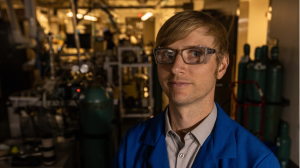
Feb. 27, 2025
Mizzou researchers are cracking the code on solid-state batteries
Using a combination of advanced imagery and ultra-thin coatings, University of Missouri researchers are working to revolutionize solid-state battery performance.
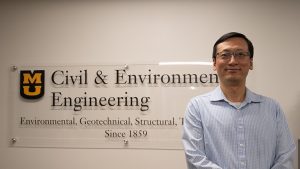
Jan. 31, 2025
Mizzou researchers discover simple solution to break down forever chemicals
The answer to removing PFAS, also known as “forever chemicals,” may be in your fishbowl.
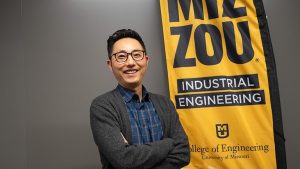
Jan. 28, 2025
Mizzou researchers use posture to measure physical demand in augmented reality users
Interdisciplinary discovery has broad implications for workplace policies and safety regulations.

March 8, 2024
Xiao recognized with Excellence in Research Award from Environmental Science & Technology journal
Mizzou Engineering’s Feng “Frank” Xiao has been recognized with an Excellence in Review Award from Environmental Science & Technology (ES&T), the premier journal in environmental engineering and science.

Feb. 23, 2024
Engineering a revolutionary method to measure cardiovascular stiffness
In a discovery that could revolutionize precision heart health care, Mizzou Engineering researchers have developed a way to measure cardiovascular stiffness—or the rigidity of arteries in your heart—based on data already being collected by traditional echocardiograms. “I consider this the most important work I’ve done in my career,” Professor Noah Manring said.
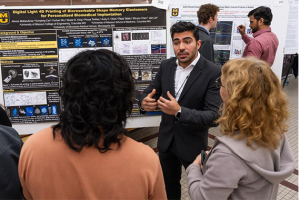
Feb. 21, 2024
Team develops prototype for 4D printed medical implant that promotes regeneration of soft tissue
A Mizzou Engineering research team has successfully developed a prototype for a personalized medical implant that promotes the regeneration of soft tissue. The key is 4D printing, a 3D printing technique used on smart materials capable of changing function based on specific conditions.
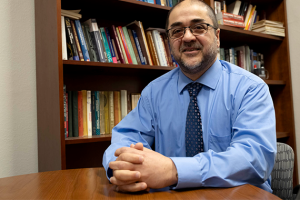
Jan. 29, 2024
Salim outlines new way to predict laminated glass failure
A Mizzou Engineer has outlined an innovative new way to simulate and predict how laminated glass windows might fail during an explosion. Hani Salim, a professor of civil and environmental engineering, and his team have created a simulation approach that integrates detailed modeling with a relation considering both elasticity and damage.
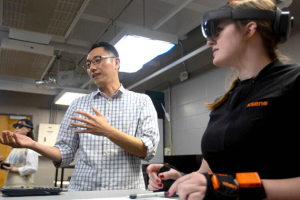
Jan. 12, 2024
Study finds correlation between metacognition and effectiveness of virtual instructors in remote classes
Augmented and virtual reality are changing the way universities can offer remote and online courses. These technologies allow for course materials to be presented to students in a more engaging and interactive way. However, right now, there’s a disconnect between the “wow” factor and what students actually learn using these technologies.

Jan. 10, 2024
Engineering professor outlines challenges, strategies around ‘forever’ chemicals in Nature Water journal
Water treatment systems in the U.S. are more than a century old, allowing contaminants to pollute our drinking water and cause health problems. There are technologies that would help states and cities filter out these chemicals without having to replace entire treatment systems; however there’s no mandate for governments to install them. Short of that, there are non-technical solutions that could help reduce pollution levels. Civil and Environmental Engineering Associate Professor Feng “Frank” Xiao outlined these challenges and strategies in a paper published in a Nature journal, Nature Water. Xiao is specifically looking at ways to treat per- and polyfluoroalkyl substances (PFAS), or 'forever' chemicals, which are found in household and industrial products. These chemicals are ending up in our water and causing various medical conditions.

June 29, 2023
Mizzou Engineer develops method to break down PFAS left on water treatment filters
In a recent study, Feng “Frank” Xiao and colleagues at the University of Missouri demonstrate an innovative method using thermal induction heating to rapidly break down PFAS left on the surface of two solid materials — granular activated carbon and anion exchange resins — after these materials have been used to filter PFAS from municipal water systems.